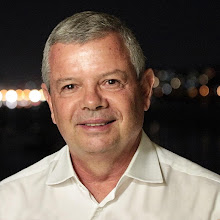Ruralistas e ambientalistas brasileiros podem aprender muito com o Quênia
Confrontados pela mobilização ruralista no Congresso Nacional para o desmonte do Código Florestal Brasileiro, agricultores e ambientalistas brasileiros estão em trincheiras opostas. Um projeto rural no Quênia, país da África Oriental, mostra que com boas ideias, boa vontade e boas técnicas, pequenos agricultores podem aumentar a produtividade de suas terras, lucrar mais com a sua produção e cotribuir para a fixação do carbono atmosférico, habilitando-se assim a receber recursos dos sistemas de créditos de carbono.
A experiência queniana, que tem o apoio do Banco Mundial, mostra que se a agricultura brasileira pode se libertar das primitivas práticas das queimadas, que são lesivas ao clima, à biodiversidade e ao solo de suas próprias propriedades, podendo ter uma nova e enorme perspectiva de financiamento da produção, aderindo a uma agenda positiva em favor do planeta. O exemplo africano, caso aplicado no Brasil, evitaria o desmatamento praticado para a ampliação da fronteira agrícola brasileira, que já é a maior do mundo. O que a nossa agricultura precisa, fora dos grotões do agronegócio, é de aumento da sua produtividade. O Quênia mostra um bom caminho para isso.
Em vez dos favores creditícios oficiais e dos recorrentes perdões governamentais para as suas dívidas e multas de sempre, o campo brasileiro daria um exemplo ao mundo de como se avançar para uma economia e, enfim, uma sociedade de baixo carbono com uma ação de grande escala, em que todos ganham várias vezes.
Veja como, lendo o artigo abaixo publicado na imprensa local:
---
Small holder farmers in Nyanza to benefit from soil carbon project
By Paul Redfern
Posted Monday, November 15 2010 at 17:50
A group of small-holder farmers in Nyanza are set to benefit from one of the first soil carbon projects in Africa, to the tune of $350,000, the World Bank said last week.
World Bank Climate Change Special Envoy Andrew Steer said the carbon trading scheme was a “triple win” for the Nyanza farmers.
In a ceremony held at the International Conference on Agriculture, Food Security, and Climate Change in The Hague on November 3, Mr Steer said that the trading scheme involved “policies and programmes that will increase farm productivity and incomes, make agriculture more resilient to variations in climate and thus promote stability and security as well as help to make the agricultural sector part of the solution to the climate change problem rather than part of the problem.”
The World Bank described the Kenya Agricultural Carbon Project as “groundbreaking” and that it will improve food security in the region as well as help address climate change while also improving the lives and livelihoods of rural dwellers.
“Besides being the first project that sells soil carbon credits in Africa, it will also pave the way for a new approach to carbon accounting methodologies,” said Joëlle Chassard, the manager of the Carbon Finance Unit at the World Bank.
She added: “As Kenya ramps up its participation in carbon markets, this project illustrates concretely how carbon finance can both support the environment and generate revenues for local communities.”
Developed with the support of the World Bank, the project generates carbon credits which are sold to the Bank-administered BioCarbon Fund.
The direct benefit to local communities is over $350,000 with an initial payment of $80,000 to be made in the first year (2011).
The project which was implemented by the Swedish non-governmental organisation Vi Agroforestry, is located on 45,000 hectares in the Nyanza Province and Western Province of Kenya.
There, small-holder farmers and small-scale business entrepreneurs are trained in diverse cropland management techniques such as covering crops, crop rotation, compost management, and agro-forestry.
These practices increase the yield of the land and generate additional sources of income for the farmers through the payment for environmental services in the form of carbon credits.
“We are proud to be part of the development of this ground-breaking project,” said Henrik Brundin, director at Vi Agroforestry.
“The development of a new methodology for carbon sequestration in agriculture has great direct benefits for the farmers in Kenya and tremendous potential for scaling up. Without the support of the World Bank and the Kenyan Government, this project would not have been possible.”
The BioCarbon Fund is an initiative by public and private contributions, administered by the World Bank. It purchases emission reductions from afforestation and reforestation projects under the Clean Development Mechanism, as well as from land-use sector projects outside the CDM.
These include projects that reduce emissions from deforestation and forest degradation and increase carbon sequestration in soils through improved agriculture practices.
Fonte: The East African, Quênia.
Assinar:
Postar comentários (Atom)





















Nenhum comentário:
Postar um comentário
Contribua. Deixe aqui a sua crítica, comentário ou complementação ao conteúdo da mensagem postada no Blog do Axel Grael. Obrigado.